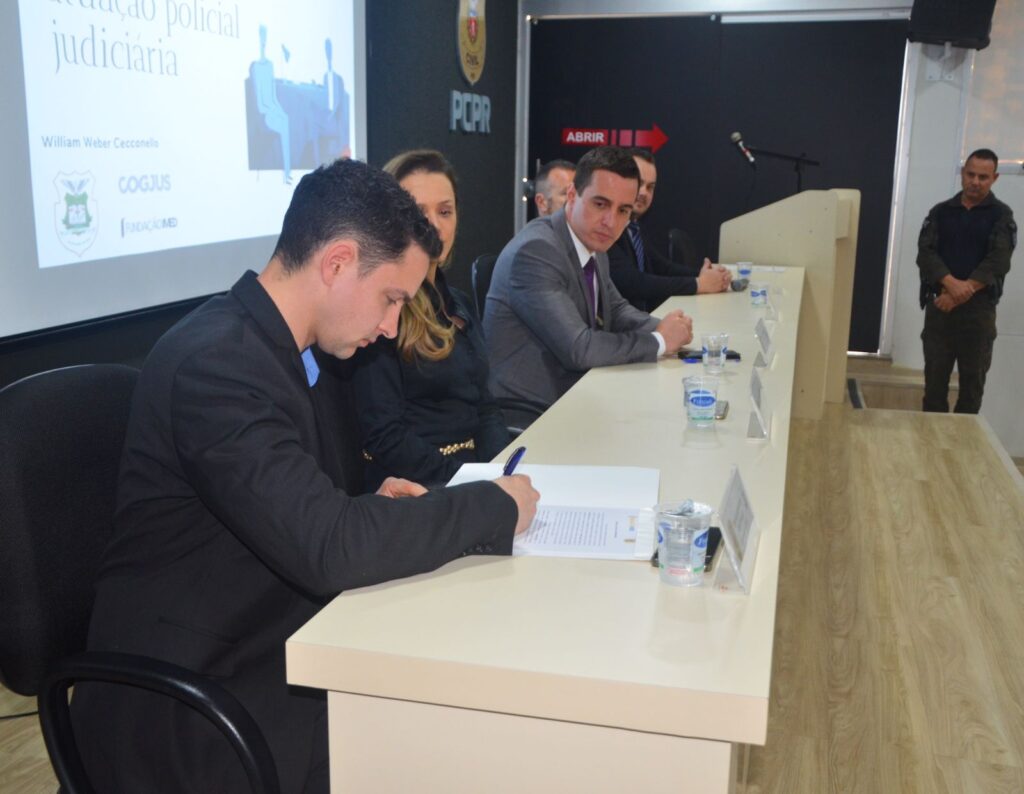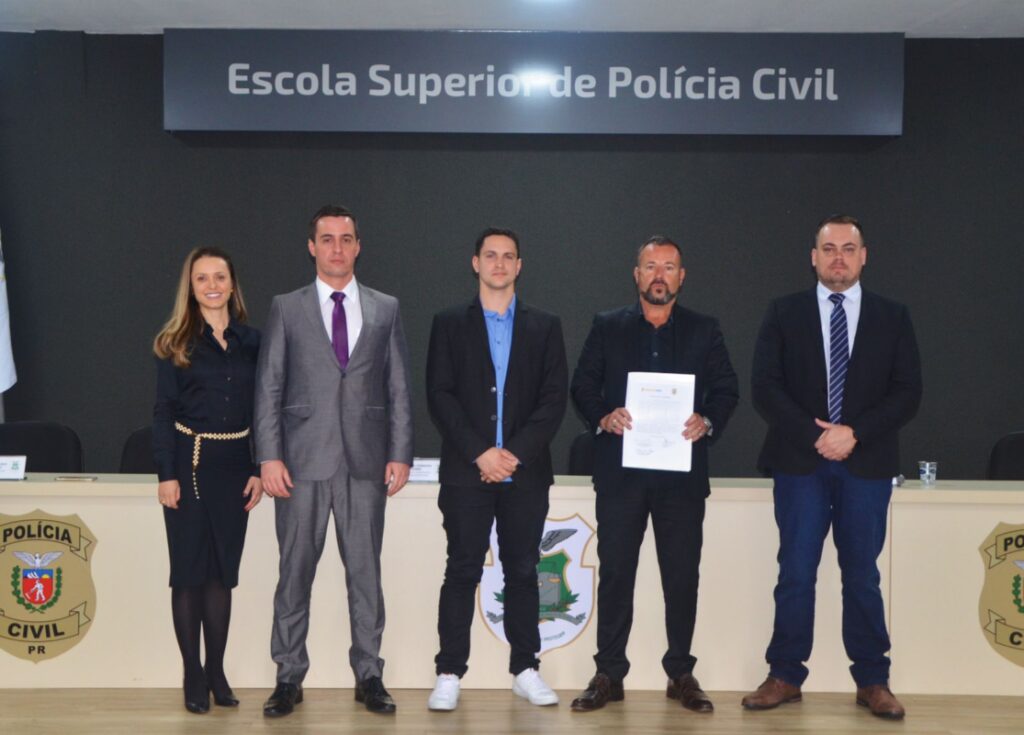The Superior School of Civil Police of Paraná affirmed on the day 5 July of July 2022, a partnership with the Imed Foundation, through the Laboratory of Teaching and Research in Cognition and Justice (CogJus), to develop training and research on the Investigative Interview. Currently, Civil Police professionals are already participating in training in Investigative Interview and training for Supervising Teachers, with the aim of improving the work of the more than 3,000 civil police officers in Paraná.
Suspects, victims and witnesses are an important source of information in a police investigation, nevertheless, people may not report everything they know, or your report may incur errors. Developed by researchers and professionals, The Investigative Interview aims to obtain accurate and reliable information from people involved in a crime. It is considered a non-coercive method of interrogation, that promoted the reduction of false confessions and errors of justice around the world. The Investigative Interview contributes to police officers conducting interviews effectively, preventing failures associated with hasty conclusions. In addition, assists in the flow of information and the operationalization of the presumption of innocence.

Research shows that, if the interviewer explores the information brought by the interviewee rather than seeking a confession, tends to obtain a greater number of information relevant to research. For instance, in case the suspect denied the crime saying he was at a friend's house, it is possible to explore this information (e.g.. asking him to talk about the way from the house to the place), and then check with other sources of information, as route cameras. Like so, from the interviewee's report, The Investigative Interview helps to corroborate or deny alternative hypotheses about what happened and who were involved.
The techniques of the Investigative Interview are based on an extensive volume of research in the last 40 Years, laboratory tested and in real cases of interrogation. The effectiveness of this model has caused several countries to adopt it as a protocol in police investigations, example of the United Kingdom, pioneer in the implementation of the practice. The union of research with the practice made the UK a reference in training police officers to conduct investigative interviews, inspiring other countries to adopt, such as Norway, Australia, New Zealand, among others. The dissemination of the Investigative Interview resulted in, more recently, principles on effective interviews for research and information gathering, establishing the basis for conducting effective interviews – the scientific evidence, law and ethics - and propose guidelines for conducting interviews and training of professionals.
The implementation of the investigative interview and its guidelines for training in other countries brought the possibility of being adapted to Brazil. Like this, one of cogjus' objectives is to conduct training for police officers and justice system professionals on best interview practices based on scientific evidence, Partnering with world-renowned experts, the Norwegian Centre for Human Rights, the IMED Foundation and brazilian police academies have made this goal possible, helping Brazil to move forward and move closer to the best practices of police investigation.

